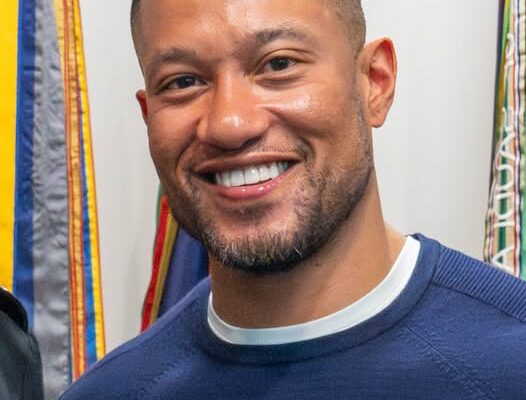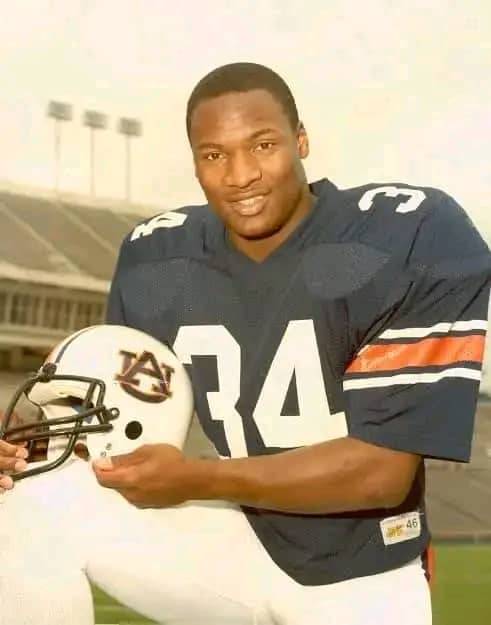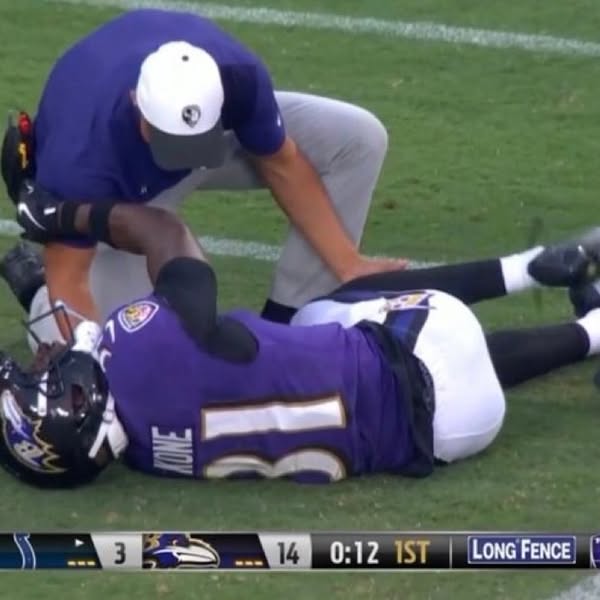Marcus Freeman on the importance of Notre Dame staying independent | Joel Klatt Show.
In a recent episode of The Joel Klatt Show, Notre Dame head football coach Marcus Freeman offered a powerful and thoughtful defense of one of college football’s most unique traditions: the Fighting Irish’s independence. As the sport continues its march toward consolidation with superconferences, television deals, and playoff expansion, Notre Dame remains a rare outlier—an elite program unbound by conference affiliation. For Freeman, this independence is more than just a logistical arrangement; it’s a core element of Notre Dame’s identity and a competitive differentiator in an increasingly homogenized college football landscape.
Freeman’s commentary arrives at a moment when independence is under greater scrutiny than ever before. With the Big Ten and SEC expanding their media reach and the College Football Playoff adopting new structures that could prioritize conference champions, the pressure has mounted on Notre Dame to consider joining a league full-time. However, Freeman was unequivocal in asserting that Notre Dame’s independence is not only worth preserving but essential to the program’s continued success and prestige.
“The independence of Notre Dame is who we are,” Freeman said during the interview. “It allows us to do something that very few programs in college football can do—chart our own path, schedule nationally, and represent our values across the country.” That assertion, while romantic to some and idealistic to others, is grounded in decades of strategic autonomy, brand building, and a commitment to a national footprint that transcends regional rivalries and conference obligations.
Joel Klatt, who has long praised Notre Dame’s role in college football’s history, pressed Freeman on whether the changing landscape makes that independence harder to maintain. Freeman admitted that the environment has become more complex, but he also argued that Notre Dame is uniquely equipped to navigate it. “We’re not naive,” Freeman said. “We know things are evolving. But our administration, our athletic director Jack Swarbrick, and our president are committed to staying independent as long as it remains viable. And from everything I’ve seen, we’re not just surviving as an independent—we’re thriving.”
A major theme throughout the discussion was how independence empowers Notre Dame to build its schedule in a way that aligns with its national brand and mission. Unlike teams in a conference that play primarily regional opponents, Notre Dame’s schedule includes a cross-country slate that takes the Irish from Los Angeles to New York and everywhere in between. Freeman emphasized the importance of this reach in recruiting and exposure.
“When I walk into a recruit’s home in California or Florida or Texas, they already know who we are,” Freeman explained. “They’ve seen us play in their region. We’re not locked into playing the same teams every year in one area of the country. That’s an advantage. And for our student-athletes, that means something. They get to experience different places, different cultures, different challenges. That’s part of their education, too.”
Freeman’s points echo a broader philosophy long embraced by Notre Dame’s leadership. The university sees football not just as a competitive enterprise, but as a vehicle for national engagement, values-based leadership, and institutional distinction. Independence allows the university to schedule traditional rivals like USC, Navy, and Stanford while also rotating high-profile matchups against programs from the ACC, Big Ten, SEC, and beyond. This model has kept Notre Dame both relevant and resonant, even without a conference title to chase.
Yet, Freeman was not blind to the challenges. The College Football Playoff’s expansion to 12 teams has sparked concern that Notre Dame’s path to the postseason might be more difficult without a conference championship. Under the current model, the top four seeds will go to the highest-ranked conference champions, and as an independent, Notre Dame is ineligible for those top four seeds. That means even an undefeated Irish team would likely begin the playoff with a first-round game instead of a bye.
“That’s something we’ve talked about,” Freeman acknowledged. “We know what the rules are. But we’re not interested in shortcuts. We want to earn everything we get. If that means playing an extra game, then so be it. If you’re afraid of that challenge, then you probably shouldn’t be at Notre Dame. This place is built on facing tough roads and finding ways to win.”
Freeman also stressed that the solution isn’t to compromise on the values that make Notre Dame different. In fact, he argued, it’s precisely those values that should be preserved even as the sport changes. “College football is evolving fast. There’s more money, more media rights, more movement. But we have to ask ourselves: What’s really important? For us, it’s not just about being the biggest or the richest. It’s about doing things the right way—academically, athletically, and spiritually. Independence allows us to protect that mission.”
Joel Klatt, a veteran analyst and former quarterback, praised Freeman’s clarity and conviction. Klatt noted that in a time when many coaches and athletic directors are chasing short-term gains or reacting to the latest market trend, Freeman’s steadfast defense of independence felt like a refreshing throwback to a more principled era. “You’re talking about vision, not just reaction,” Klatt said. “That’s what leadership looks like.”
Another dimension Freeman touched on was the historical weight of independence at Notre Dame. Since the program’s early days, it has embraced the role of national challenger. In the 1920s, Knute Rockne scheduled games against Army in New York and barnstormed the country to build a Catholic university’s brand in a time of rampant anti-Catholic prejudice. That independent spirit helped Notre Dame become America’s Team long before TV contracts or bowl tie-ins.
“History matters here,” Freeman said. “You walk into our locker room and you see the names—Rockne, Leahy, Parseghian, Holtz. Those guys didn’t need a conference to prove themselves. They built a brand that stands on its own. We owe it to them—and to the players who wear the jersey now—to carry that tradition forward.”
Freeman also made it clear that independence isn’t about arrogance or isolation. Notre Dame is not rejecting conferences out of disdain; it’s choosing autonomy out of intention. The school has aligned itself closely with the ACC in most sports and has scheduling partnerships that ensure competitive balance and variety. “We’re not out here alone,” Freeman said. “We’re deeply connected to the college football community. We just want to do it in a way that fits who we are.”
Indeed, the school’s semi-affiliation with the ACC in football has allowed Notre Dame to play five ACC opponents annually, while still preserving its rivalry games. That blend of structure and freedom has served the Irish well and might serve as a model for other programs navigating realignment. Freeman suggested that other schools might envy Notre Dame’s flexibility, even if they’re unwilling or unable to replicate it.
“We have choices,” he said. “A lot of schools don’t. That’s power. But with that power comes responsibility. We can’t take it for granted. We have to keep earning it—on the field, in the classroom, and in the way we represent this university.”
The broader conversation also touched on the unique pressure of coaching at a place like Notre Dame. Freeman, who took over in 2022, has quickly become a respected figure for his calm leadership, recruiting prowess, and openness to innovation. But he’s also steeped himself in the culture and expectations that come with leading a program that has won 11 consensus national championships and produced seven Heisman Trophy winners.
“You don’t just coach here,” Freeman said. “You steward a legacy. You have to win, yes—but you also have to elevate everyone around you. That’s what independence is, too. It’s not about doing it by yourself. It’s about doing it with integrity, with purpose, and with a vision that goes beyond the scoreboard.”
As college football barrels toward a future defined by consolidation, television megadeals, and NIL-driven recruiting, Notre Dame and Marcus Freeman stand as a counterpoint—an elite program choosing values, tradition, and autonomy over assimilation. For Freeman, the importance of remaining independent isn’t just about logistics or playoff access. It’s about identity, legacy, and the belief that excellence doesn’t require conformity.
“In a world that’s changing fast, we’re staying true to who we are,” Freeman concluded. “And that’s what makes Notre Dame different. That’s what makes us strong.”



